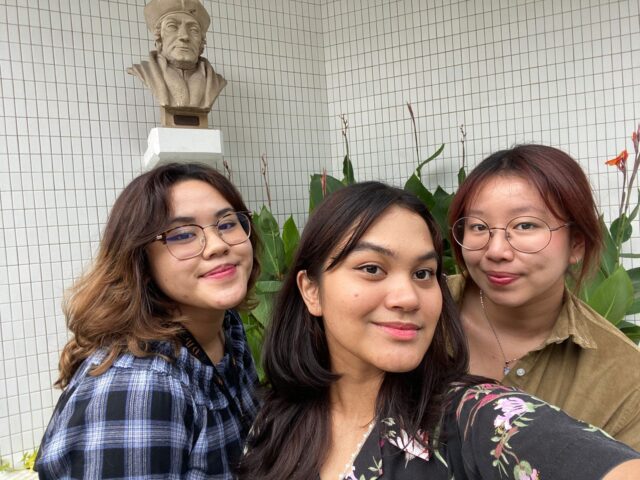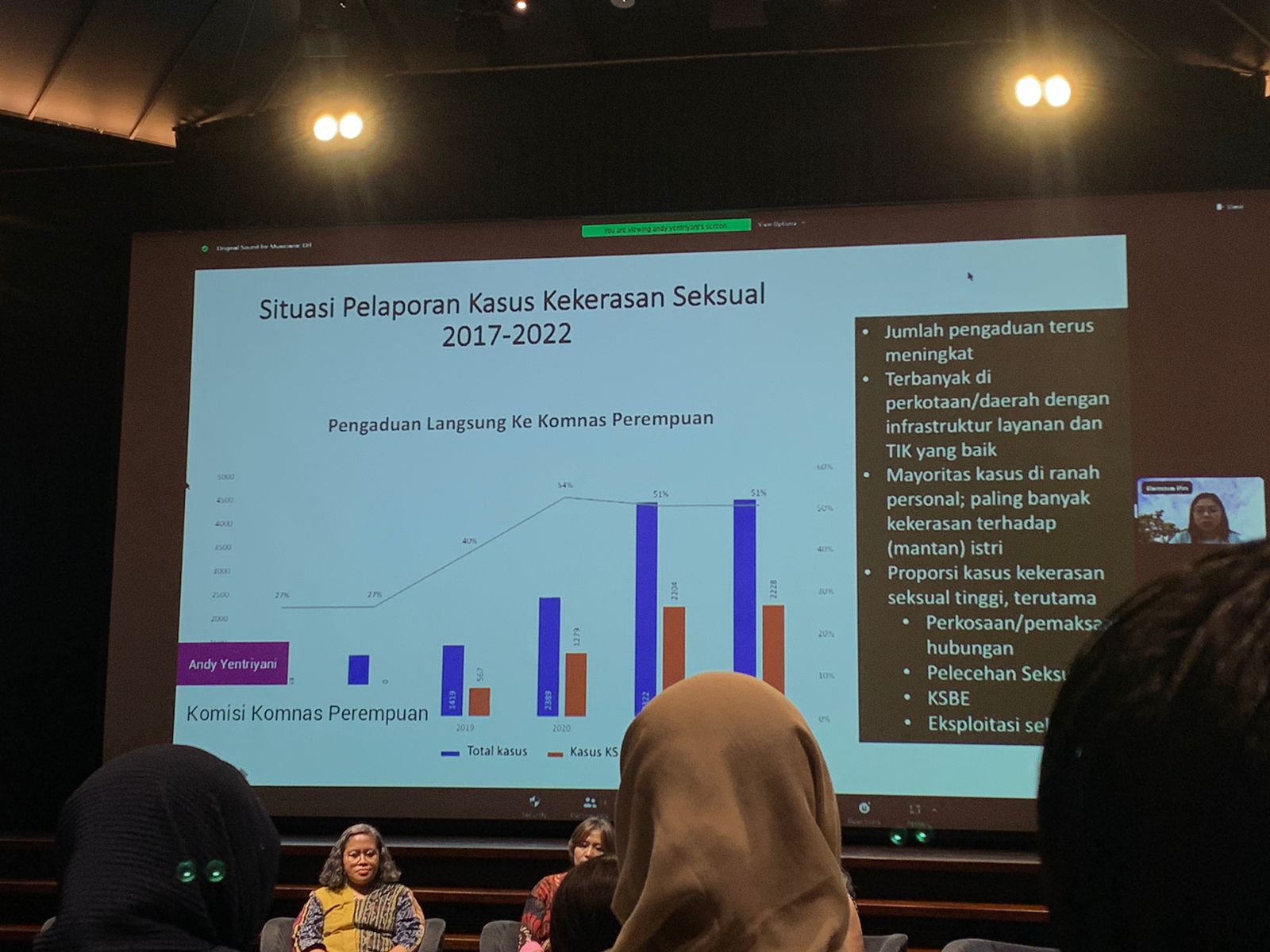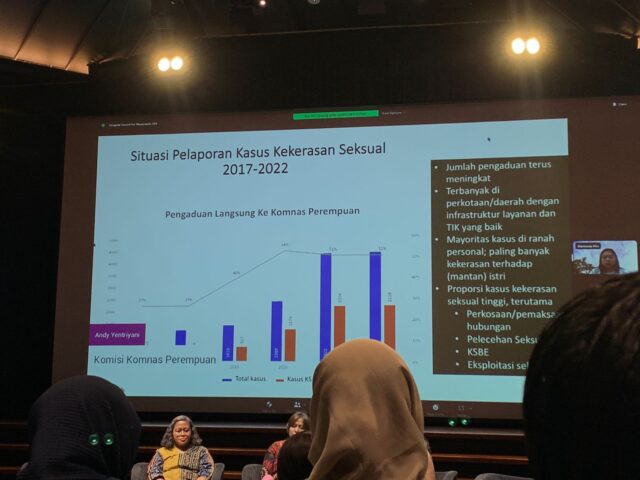May Day: Reflecting on 1 Year of the TPKS Law Against Women in Labor Seminar
May Day: Reflecting on 1 Year of the TPKS Law Against Women in Labor Seminar
By Radikha Freya Anjani (2440047324) & Aileen Josephine Alvin (2440008241)

On May 10th, a seminar titled “May Day: Reflecting on 1 Year of the TPKS Law Against Women in Labor” was held at the Dutch Embassy in Jakarta. The event was part of the A.E. Priyono Democracy Forum, which was organized by Public Virtue Republik Indonesia (PVRI) and the Dutch Embassy to commemorate one year since the passage of the Law on Crimes Against Sexual Violence (UU TPKS). The entirety of this forum is to discuss further the application of the law in the workplace towards women; initially to walk through whether the law has been utilized accordingly.
The seminar reached out to universities in Jakarta, extending invitations to a selected number of students to attend and participate. I had the privilege of being invited to represent the BINUS English Department at the seminar, alongside my fellow English Literature students, Annisa Rifani and Aileen Josephine Alvin. The seminar, held in the Erasmus Huis auditorium, spanned two hours and focused on addressing the alarming increase in gender-based violence against women in the workplace throughout 2022.
The distinguished panel of speakers included Willy Aditya, the Deputy Chairman of the House Legislation Body, DPR RI; Andy Yentriani, Commissioner of Komnas Perempuan; Nining Elitos, a labor activist; and Hani Yulindrasari, the Head of the Special Unit for Sexual Violence Eradication at Universitas Pendidikan Indonesia. The keynote speaker for the seminar was Edward Omarr Sharif Hiariej, the Deputy Law and Human Rights Minister of the Republic of Indonesia. The opening remarks were delivered by H.E. Lambert Grijns, the Netherlands Ambassador to Indonesia, who sent a wave of a surprise to the audience by speaking fluent Indonesian without any accent.
During the seminar, Komnas Perempuan, Indonesia’s National Commission on Violence Against Women, presented compelling evidence indicating a worrisome rise in gender-based violence against women in 2022. This revelation emphasized the crucial need for the community to acquire information and engage in safe discussions to gain a comprehensive understanding of the challenges associated with protecting women in the workplace.
After each panelist was done with their section, the audience had the opportunity to ask questions to them, particularly directing their inquiries toward the government officials present. The questions raised were critical, focusing on why victims of sexual harassment still feel afraid to come forward despite the existence of the law and why some victims feel that there is still personnel of the authorities who still belittle their experiences. These questions struck at the heart of the systemic challenges faced in combating gender-based violence. While the panelists provided answers, it was acknowledged that their responses may have been somewhat unsatisfying, as they primarily offered a basic explanation of the existing legal and institutional frameworks.
Addressing the question regarding victims’ fear of coming forward, the speakers highlighted the complex societal dynamics surrounding the issue. They acknowledged that despite legal provisions, cultural barriers, victim-blaming, and a lack of trust in the justice system continue to impede reporting and seeking justice. The panelists emphasized the importance of ongoing awareness campaigns, support services, and the need to foster a safe and supportive environment for victims. While the panelists’ responses were acknowledged as a starting point, it was evident that further action and systemic changes are necessary to address the deep-rooted challenges surrounding gender-based violence in the workplace. Andy Yentriani, Commissioner of Komnas Perempuan, emphasized that this seminar is to remind everyone, particularly the marginalized, that we must continue to oversee the continuity of the TPKS Law so that it continues to work effectively.
The critical questions posed by the audience served as a reminder of the urgency to implement comprehensive solutions that go beyond mere legal frameworks. It highlighted the need for collaborative efforts between government agencies, civil society organizations, and the community at large to foster a culture of support, understanding, and empowerment for victims of gender-based violence. It was endearing to see these questions being imposed by fellow university students, which reminded us that our generation consists of people with critical minds and the will to contribute to their society.
Attending the seminar was an invaluable privilege that we deeply appreciated. As young women, we are acutely aware of the issues addressed in this seminar, and being able to partake in a discussion about a law that directly impacts our lives, facilitated by the very individuals who contributed to its creation, was an exceptionally enlightening experience. As students of literature, we may not be well-versed in the intricacies of legal terminology and the procedural aspects of lawmaking. However, this seminar provided us with a remarkable opportunity to expand our understanding of these realms. The engaging discussions and informative presentations helped demystify the legal aspects surrounding gender-based violence, empowering us with knowledge and enabling us to view the issue from a multifaceted perspective.
As we reflect on it, we are inspired to take a role in advocating for the rights and safety of women in the workplace. We recognize the importance of fostering an environment where victims can confidently come forward, knowing they will be met with empathy, support, and justice. It is incumbent upon us, as future leaders and members of society, to champion initiatives that challenge societal norms, promote gender equality, and ensure that the rights of every individual are respected and protected.
We extend our gratitude to the organizers, speakers, and panelists for their dedication to this crucial cause. Their commitment to raising awareness, facilitating dialogue, and striving for change is commendable and serves as a beacon of hope for a future free from gender-based violence. We also thank the English Department for constantly providing amazing opportunities to their students and giving us the facilities to expand our knowledge.


Comments :